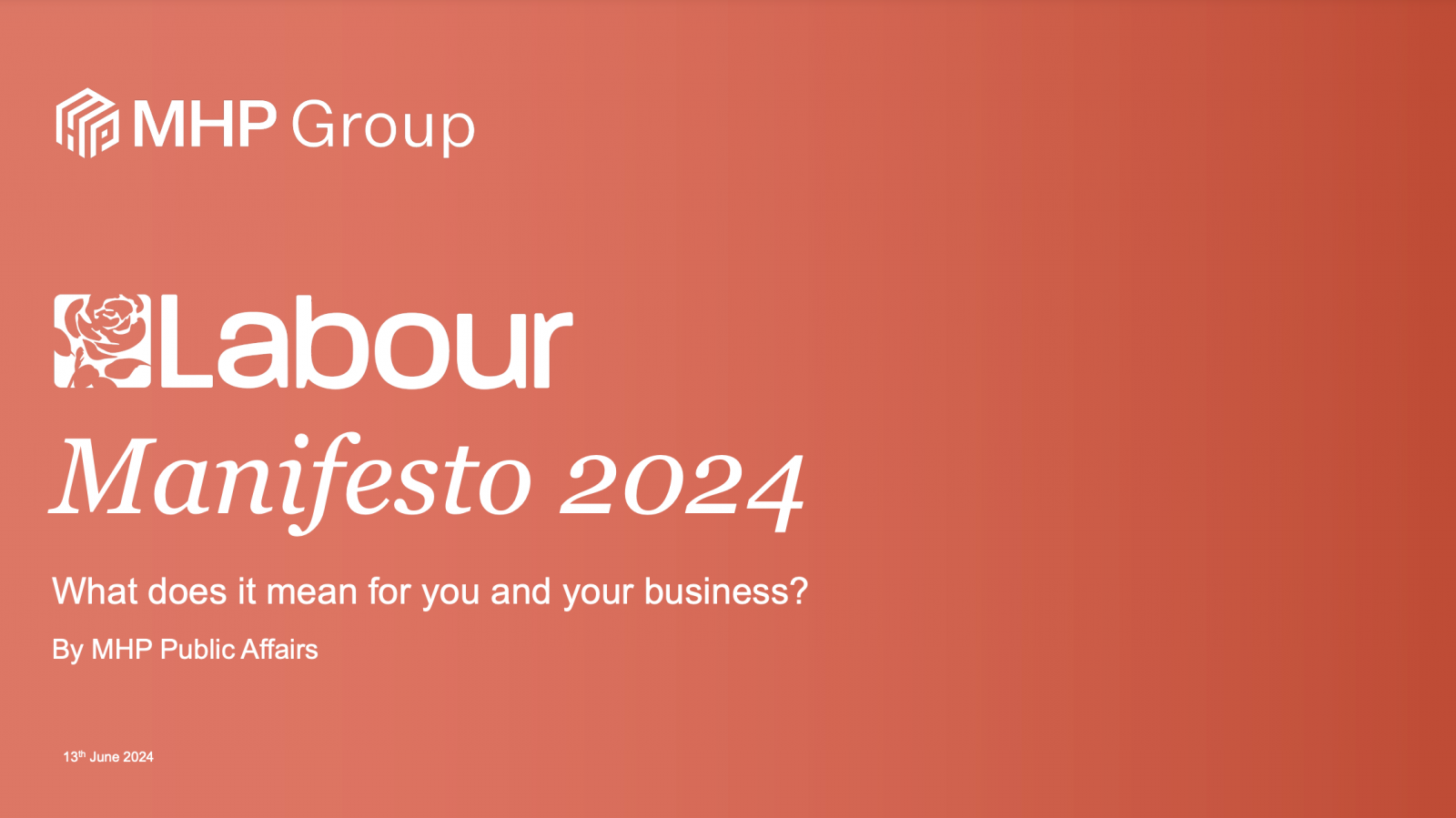The eagerly anticipated Labour election manifesto is here, and the big surprise is, there are no surprises.
The significant policy announcements have all already been made and the pitch has been well and truly rolled - Keir has repeatedly spoken about his five missions for government and more recently his six steps for change. This is a feature, not a bug. Labour knows that the job now is to keep sceptical switchers on board rather than to promise radical change.
And Labour made a virtue of this at the launch – as Keir said at the podium today: “It’s not about rabbits out the hat, it’s not about pantomime, we’ve had that. I’m running as a candidate to be Prime Minister, not a candidate to run the circus”.
The headlines announcements from Labour are as follows:
- Create a Green Prosperity Plan to invest in the industries of the future – creating 650,000 jobs by 2030;
- Raise £7 billion in tax by launching raids on private schools, overseas property investors and non-doms;
- Reform the British Business Bank, including a stronger mandate to support growth in the regions and Nations;
- Create a new National Infrastructure and Service Transformation Authority, bringing together existing bodies to oversee the design, scope and delivery of projects;
- Publish a roadmap for business taxation for the next parliament which will allow businesses to plan investments with confidence;
- Replace the business rates system, so that revenue can be raised more fairly;
- Improve guidance and remove barriers to exporting for small businesses;
- Reform the British Business Bank, including providing a stronger mandate to support growth in the regions and Nations;
- Aim to double the size of the UK’s co-operative and mutuals sector;
- Retain a permanent full expensing system for capital investment and retain the annual investment allowance for small business;
- Give firms greater clarity on what qualifies for allowances to improve business investment decisions;
- Make it easier for small-and-medium-sized enterprises to access capital.
Manifesto analysis
Labour's pitch to the country is that after 14 years of Conservative rule, nothing works any more. It's also that the Labour Party is no longer a party of protest – now it is positioning itself as a party that seeks power for (incrementalist) political change. Labour argues that the manifesto sets a realistic vision for the change that five years of a Labour government will deliver.
And to hammer home that point, "change" is referenced 197 times across the manifesto. Now that is consistent messaging…
There is no doubt that some people will be left asking for more, but Keir has been consistent that the manifesto is about setting the direction of travel for an incoming government not laying out a day-by-day, blow-by-blow timeline of every decision for the next parliament.
The manifesto is more like a jigsaw, putting together existing policy announcements, rather than a roadmap. Today is the culmination of that jigsaw finally being put together but it isn’t the end of the story. There is still plenty of time to influence the shape of the Labour’s agenda as they transition from opposition to government.
With Labour’s manifesto launch today, the policy agendas for all the main parties are now known. MHP’s Public Affairs team have analysed the key announcements from this morning's launch, providing insight into the ideas that are likely to make up the next government's legislation. Download the analysis.
What has been the reaction so far?
The Times’ analysis of Labour’s manifesto finds that “Keir Starmer and Liz Truss have common ground on growth”. It suggests that whilst the ill-fated former prime minister put the cart before the horse with tax cuts, the Labour leader is asking for potentially endless patience.
The Telegraph notes the Resolution Foundation’s description that Labour’s manifesto “sets the scene for a parliament of tax rises and spending cuts” if the party wins the general election, according to the Resolution Foundation think tank.
Lord Bethell, a Conservative Member of the House of Lords and former Health Minister, speaking on Sky News described the Labour manifesto launch as "impressive" and a "display of consistency".
On LBC this morning Nigel Farage revealed to Nick Ferrari that he would be willing to lead a merged Conservative-Reform political party that is the official opposition to a Labour government.
Moments of the day
However, the undoubted moment of the day has to go to Dawn Butler for providing us with the ‘So Solid Crew – Labour campaign' mashup that we didn't know we needed but we definitely deserve.













